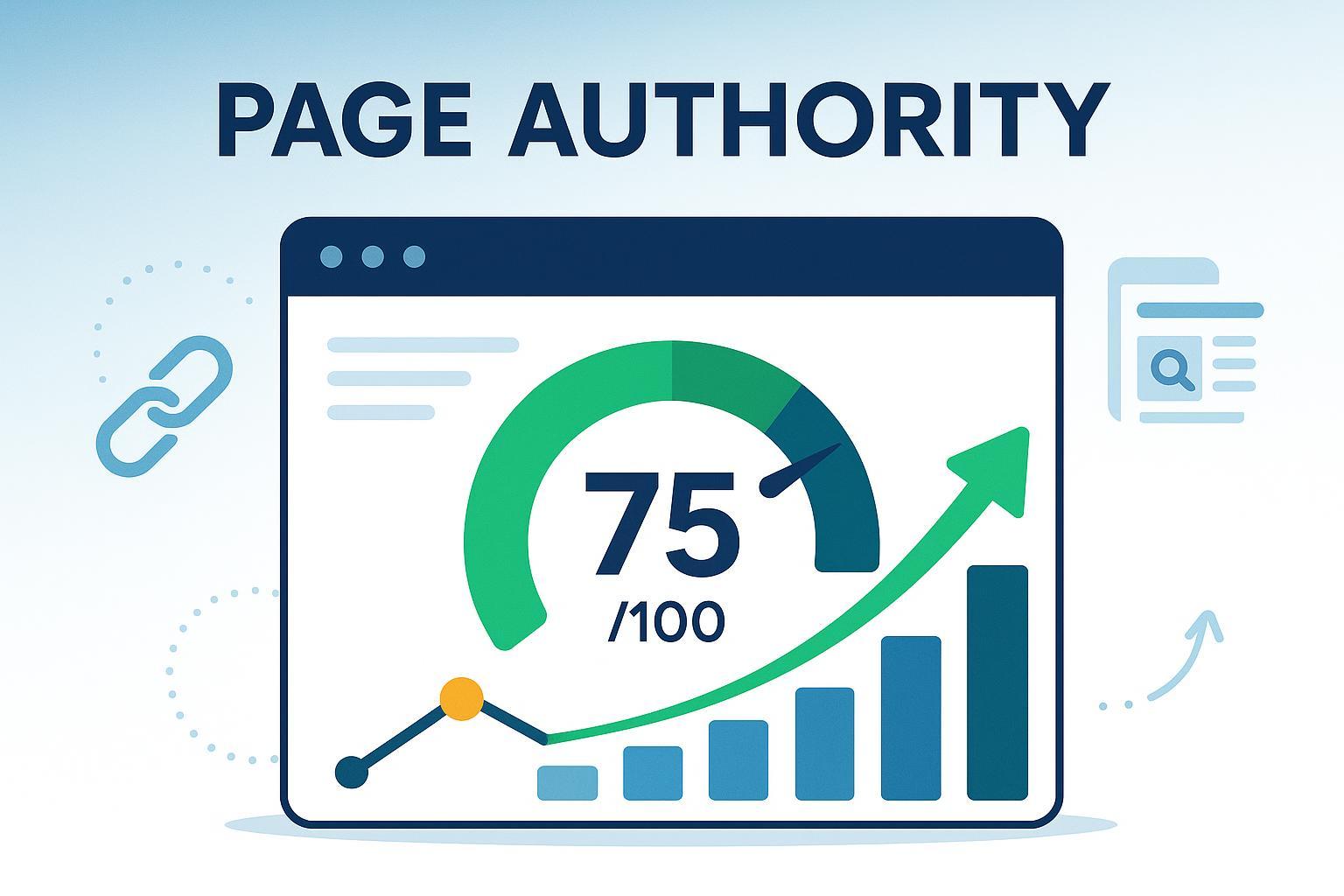Understanding Page Authority: Its Role in SEO Success

What Is Page Authority?
Page Authority (PA) is a predictive score, developed by Moz, indicating how likely a specific web page is to rank well on search engine result pages (SERPs).
In-Depth Explanation
Page Authority is a core SEO metric that helps marketers, content creators, and SEOs assess the competitive strength of individual pages—not entire sites. The score ranges from 1 to 100: higher numbers reflect a stronger likelihood of achieving high rankings on Google or Bing.
Developed by Moz, PA is calculated using a proprietary, machine learning-based algorithm. It factors in dozens of link-related elements (like the quantity and quality of inbound links, linking root domains, MozRank, MozTrust, anchor text diversity, and follow/nofollow ratios). Importantly, on-page elements such as keyword optimization and content quality do not affect PA directly.
The scale is logarithmic: advancing from 20 to 30 is much easier than going from 70 to 80. Moz updates the algorithm and link index regularly, so the PA score can fluctuate over time—even if you make no changes to the page.
Key Components of Page Authority
- Backlink Profile: Number and quality (authority) of inbound links.
- Linking Root Domains: Variety of unique sites pointing to your page.
- MozRank & MozTrust: Proprietary Moz metrics for link quality and trustworthiness.
- Anchor Text Diversity: Variation of text used in links to the page.
- Machine Learning Algorithms: PA is recalibrated to best fit observed SERP outcomes.
Practical Applications
- Competitive Comparison: Compare your landing pages or blog posts against top-ranking competitors for your target keywords.
- SEO Prioritization: Identify which pages need more link-building efforts or internal linking.
- Performance Tracking: Measure the impact of campaigns or content/link-building strategies over time.
Page Authority vs. Domain Authority
Page Authority (PA) and Domain Authority (DA) are often confused but serve distinct purposes:
| Feature | Page Authority (PA) | Domain Authority (DA) |
|---|---|---|
| What it measures | Ranking strength of a single page | Overall ranking strength of a domain |
| Calculation factors | Primarily link profile of the page | Aggregate of all site pages/links |
| Volatility | High (changes with page’s backlinks or profile) | Relatively stable |
| Use case | Targeting specific URLs | Evaluating overall site health |
How to Improve Page Authority — Step-by-Step Checklist
- Build High-Quality External Links: Target authoritative industry sites for natural backlinks.
- Increase Linking Root Domains: Focus on diversity, not just link quantity.
- Optimize Internal Linking: Cross-link relevant pages within your own site using descriptive anchor text.
- Remove or Disavow Spammy Links: Audit and eliminate low-quality inbound links that may signal spam.
- Monitor Regularly: Use SEO tools to track PA changes and correlate with SERP positions.
FAQ: Common Questions About Page Authority
Is Page Authority a Google Ranking Factor?
No; PA is a third-party metric from Moz, not used by Google in its ranking algorithm.
Why does my PA fluctuate?
Algorithm and link data updates from Moz can cause natural variations—this does not always reflect something you did right or wrong.
Does better content raise PA?
Not directly. However, strong content attracts better links, which in turn may boost PA.
Related Concepts
- Domain Authority (DA): Measures entire site strength—see table above.
- Backlink Profile: The mix of links coming into a page; crucial for both PA and SEO success.
- SERP (Search Engine Results Page): PA is designed to predict your likelihood of ranking here.
- On-Page SEO: While not affecting PA directly, it remains vital for actual ranking.
Key Takeaways
- Use PA as a comparative benchmark. Focus on outperforming your direct competitors, not chasing an arbitrary score.
- Combine PA with other metrics (DA, on-page SEO, user signals, traffic) for holistic SEO decision-making.
Want to learn more? Visit the Moz Page Authority Guide for technical details and ongoing updates.

